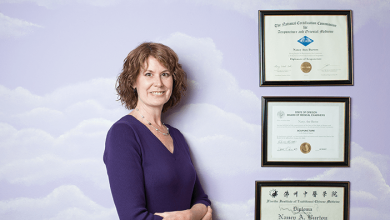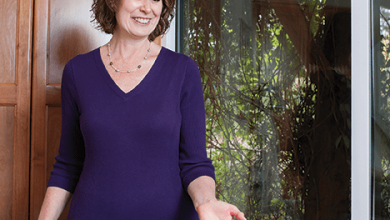Food is the Best Medicine Part 1: Why Vegetables? By Nancy Burton
“Eat your vegetables!” A mother’s mantra most of us grew up with. “Why?” The reply was usually either, “Because they are good for you.” or “Because I said so.” Neither one very informative! So in this article, in tribute to all mothers who try to do what’s best for their offspring, I’ll discuss why vegetables are not only the best medicine you can give your body, but the best health insurance money can buy.
Initially humans were hunter and gatherers. Different plants grew in different areas because of the diverse mineral content in various locations. We can’t eat the minerals, the rocks, or soil, to get what we need. Plants break down the soil and extract nutrients for us. By eating the plants we get the nutrients from the soil in a form we can utilize.
Early humans roamed from place to place looking for edible plants and protein sources. What they ate was a varied and constantly changing diet. What attracted them were the different colors and textures. Today, when we go to a fine restaurant, just as important as the food itself, is the presentation. Garnish of some sort attracts the eye. But the reason those swirls of colored sauce on the plate, the sprig of parsley and tomato, make the whole dish more appealing is our basic need for a variety of nutrients. The wider the assortment of vegetables, in color and texture, the more variety of nutrients we receive from them.
When people started cultivating plants they learned they had to provide what those plants needed to grow and thrive. Rotating crops prevented soil depletion. Using compost, manure, bone meal, seaweed or other nutrient rich fertilizers insured a productive crop. Each field, in turn, needed to be left fallow, not planted with a cash crop, for one growing season every so often. Alfalfa is a crop that’s often plowed under, instead of harvested, to enrich the soil.
Modern (non-organic) growing methods taught farmers they could skip all of these time and money consuming steps by just adding a few chemicals to make sure plants were the right color and size. But, they don’t taste as good. They are coated with oil-based pesticides and herbicides, since they aren’t healthy enough to survive without poisons to protect them from weeds and pests. But one of the main problems with non-organic vegetables, is you aren’t getting what you are paying for. Nutrients! Skipping all those steps, not growing the vegetables in rich soil, means sacrificing the nutrients. As I’ve mentioned in my previous articles, nutrients make everything in the body work. Nutrients are what gives us energy, keeps us alert, calm, able to handle physical and emotional stress, and supplies what we need to function and heal. A wide variety of organic vegetables three times per day, is the key.
The second reason for vegetables is detoxification. The first phase of liver detoxification is when toxins are released from the fat cells where they’re stored. The second phase is when toxins are flushed from the body. The catch is, that second phase takes nutrients. Most of us have had the experience of physically working hard, sitting long hours at a desk, or exercising without stopping to eat or drink enough water. The result is a fluish or achey feeling. Eating makes us feel better because we are getting some nutrients to initiate the second phase of liver detoxification. The majority of people don’t eat enough variety of vegetables on a daily basis to detoxify as they should. In our modern world humans are exposed to more toxins than ever before. A wide variety of vegetables, three times per day, means supporting your body’s ability to detoxify, three times per day. What is chocked up to old age, arthritis, even chronic pain and fibromyalgia, is often simply the body not getting enough nutrients, or having the ability to assimilate the nutrients, to flush toxins out of the body.
Live enzymes are a third important reason for vegetables. When you leave raw vegetables out on the counter, after a few days they get soft, then mushy. You can see them eating themselves away. Those are the live enzymes at work. When we eat vegetables, raw, slightly steamed or sautéed, so they are still colorful and crunchy, we are incorporating live enzymes in our digestive process. When we consume enough live enzymes from vegetables they not only help digest the vegetables, but the rest of the food we eat as well. If we have enough left over they counteract inflammation, eat away scar tissue and enable us to heal at an accelerated rate.
A person in their 70’s typically has one-third the pancreatic enzymes as a person in their late 20’s or early 30’s. Which is why you can eat just about anything when you are young and get away with it. So think of your pancreatic enzymes as your retirement account. There’s only so much there. The live enzymes you eat each day, by eating a wide variety of vegetables, are your checking account. They’re what prevents you from using up your retirement account too quickly. Studies done with people in nursing homes, where they served canned or over cooked vegetables, showed dramatic improvement in residents, mentally and physically, when slightly cooked and raw vegetables were added to their diets. Some residents were able to move from the nursing home section back to assisted living, or even go home.
The fourth reason to eat a wide variety of vegetables, three times per day, is to keep the body alkaline. We want our digestive system to be acidic, to break down our food and to protect us from allergens we breath in, or ingest. Allergens (dust and pollens) and pathogens (viruses, bacteria and parasites) are captured in mucous to be flushed down the esophagus and ideally eradicated by stomach acid. But we want our bodies to be alkaline.
There was a German doctor, Otto Warburg, who won the Nobel Prize in 1932 for his work with cancer. His research indicated that cancer proliferated in an acidic environment. When you put anything in acid it breaks down. When our cells become too acidic they get to the point they no longer function. The body then has to remove them. If the body isn’t healthy enough to replace those cells quickly, cancer and autoimmune diseases can result. Well before that time an acidic body can lead to chronic pain. We have since learned that genetic markers set the stage for certain diseases but that lifestyle choices are like a light switch turning on or off those markers.
Everything we eat, proteins such as meat, poultry, fish, beans, legumes, and eggs, and also grains, nuts, seeds, fruit, and alcohol turn to acid in our bodies, except for vegetables. Vegetables make our bodies alkaline. The bulk of our diets should be vegetables, slightly steamed or sautéed, which are easily digestible, or raw, so we haven’t cooked away the bulk of the vitamins, minerals and live enzymes. Dr. Otto Warburg’s research also indicated that over cooking food results in oxygen deprivation in the cells, which he says set the stage for cancer.
A fifth reason for vegetables is fiber. The best way to get the fiber we need to prevent constipation and other digestive issues are vegetables not grains. Along with prescribed supplements, to insure assimilation of food, reducing grains and adding a wide variety of vegetables to the diet has enabled many of my patients to resolve lifelong problems with constipation.
The sixth reason for vegetables is to prevent hypoglycemia, that crash of energy, mood and mental clarity that sends people scrambling for caffeine, sweets, a protein bar, energy drink or junk food for a quick fix. Of course this causes another crash later in the day. Eating 6-10 different types of vegetables with protein for breakfast can prevent a slump of energy in the afternoon. Eating 6-10 different types of vegetables with protein for lunch can prevent binge eating in the evening.
Faulty research, funded by the food manufacturing companies, stated that a diet high in grains kept people regular and the colon clean. At one point, one of the many revised food charts, was a pyramid with grains as the largest portion at the base. This way of eating contributed to so much obesity and health problems that, once again, the food chart was revised. But most people still eat an over abundance of grains, instead of vegetables, thinking it’s good for them.
Grains, seeds, and nuts that are not soaked, sprouted or fermented have enzyme inhibitors that prevent us from breaking down our food and absorbing nutrients. How many grains you consume depends on how physically active you are and how your metabolism facilitates their assimilation. But it’s vegetables, not grains that supply the fiber we need and help us digest our food, keeping us regular and our colon in good shape.
When people don’t like vegetables it is usually because they have an overgrowth of Candida. (See March’s article on digestion.) This makes them crave sweets, empty starches, or alcohol which feed Candida, and not want what is good for the body, especially vegetables. Addressing Candida can change people’s taste in foods, helping them desire what’s good for their bodies instead of the junk.
Picky eaters with very limited pallets often suffer from a zinc deficiency. Soaked or sprouted sunflower seeds, which can then be dried, are a good way to incorporate more zinc in the diet and can lead to expanded food choices in children and adults.
One thing I hear quite often from my new patients is, “I have a really good diet.” This usually means they have a salad at lunch, some mixed greens and tomato, and a salad at dinner with one vegetable like broccoli. More colors and textures mean more vitamins and minerals. So a couple of times a week chop up 6-10 different types of vegetables. Then you have them for a quick stir fry, to steam, throw in soup at the last minute, or add to a variety of dishes. You also have meals that just take 15-20 minutes to prepare. I keep a mixture of frozen organic vegetables in the freezer for when I am short on time or my pre-chopped vegetables. Overcooking or canning kills nutrients and live enzymes, freezing does not.
Which brings up the question: don’t you lose nutrients chopping them up ahead of time? From the time vegetables are harvested the nutrients start to decline. Having your own garden is the healthiest way to go. But most of us don’t have that luxury. Sitting in the store, sitting in the refrigerator, and chopping them up ahead of time all results in some nutrient loss. But eating a wide variety, and having them quickly and easily available, is so beneficial to our health the loss is comparatively minimal. In just a week or two of eating whole fresh foods, most people experience increased energy, mental acuity, less aches and pains, and a sense of increased physical and mental well being.
So, as Mom used to say, “Eat Your Vegetables!” And now you know why.
Health and Happiness, Nancy Burton, L.Ac.
For help with Health Issues, Nutritional Counseling, Health Coaching and Acupuncture you can make an appointment with Nancy by calling: 541-646-0134 Insurance Accepted


